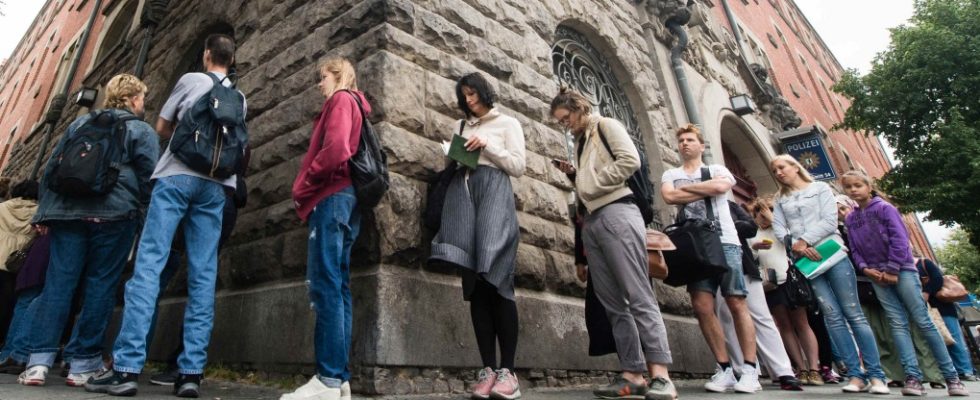If a law has “2.0” in its name, it can mean two things: The first version simply wasn’t good enough. Or this is just the beginning and there will be many more chapters of the same thing. The former is definitely the case in the case of the Online Access Act (OZG): the first version failed across the board. Therefore now the new edition – in the hope that it remains the last.
The SPD, Greens and FDP factions have agreed on the so-called OZG 2.0, which is to be passed in the Interior Committee of the German Bundestag on Wednesday. It obliges the federal and state governments to offer all administrative services digitally in the future. “We want to avoid going to office,” says domestic politician Dunja Kreiser (SPD). The traffic light parties even enshrine a right to these digital services in the draft law: From 2028 onwards, they should be able to be sued at the administrative court. This will significantly increase the pressure for implementation, says the FDP’s digital policy spokesman Maximilian Funke-Kaiser. However, claims for damages do not go hand in hand with the right to sue.
Signatures on paper will soon be a thing of the past
And even if 2028 still sounds very much like a dream of the future: the plan is certainly ambitious. So far, digital administrative processes in Germany have only worked mediocrely to poorly. Hardly any administrative services really work online; German bureaucracy is a real pain in the butt for many citizens. “Germany is not a digitalization world champion, we know that,” says domestic politician and digital expert Misbah Khan (Greens). However, this situation did not arise overnight. “We as Traffic Light have inherited a major construction site.” Khan blames this primarily on the past government’s “embarrassing lack of interest in its own administration.” This “created a vision without showing a viable path to the goal”.
The new draft law now attempts to take some steps towards a “citizen-oriented administration”; to achieve what the OZG 1.0, which came into force in 2017, did not even begin to achieve. It primarily provides for the provision of uniform standards and interfaces for municipalities. Accordingly, open source software should primarily be used in the future. In addition, the traffic light parties want to introduce a right to encryption and a so-called data protection cockpit, which can be used to track access to personal data.
In addition, the so-called “written form requirement” will be abolished. Up to now, every administrative act has to be signed on paper sooner or later. This will soon be a thing of the past. In any case, the entire digital identification process should be simplified: In the future, citizens should only have to identify themselves once with their electronic ID card, after which confirmation using biometric characteristics is sufficient.
“In our daily lives, most of us are used to logging in with Face ID and doing something like online banking,” says Kreiser, “we’re now doing that with government tasks too.” And paying for administrative services should finally become easier: In addition to Girocard and cash (which is already difficult when dealing with digital authorities), it should also be possible in the future to pay at the office by credit card, Paypal or Apple Pay.
“We have pushed the limits of the constitution.”
However, it is also clear that what the federal government regulates does not automatically reach the municipalities. The OZG 2.0 directly affects administrative services such as the Federal Employment Agency, Bafög applications and information from the points register in Flensburg. However, contact with local administrations is much more common – and these are the responsibility of the states, which means that “one cannot make unilateral regulations,” according to Bundestag member Robin Mesarosch (SPD). No matter how much preparatory work the federal government can do, the municipalities have to implement it themselves.
Even the negotiators would rather not describe the OZG 2.0 as a major breakthrough. One should not succumb to the illusion that the new draft law will “now digitize the entire administration,” said Mesarosch. “We pushed the limits of the constitution,” he says – we got out what we could get out of it.
There’s still a lot left: the first version of the OZG planned to make a total of 581 government services available online by the end of 2022. As of now, only 81 of them are actually digitally accessible, and a further 96 are at least partially available online. Experts fear that it could stay that way for the time being, at least until 2028. Only then will the right to digital access to the state take effect – and can be enforced.

